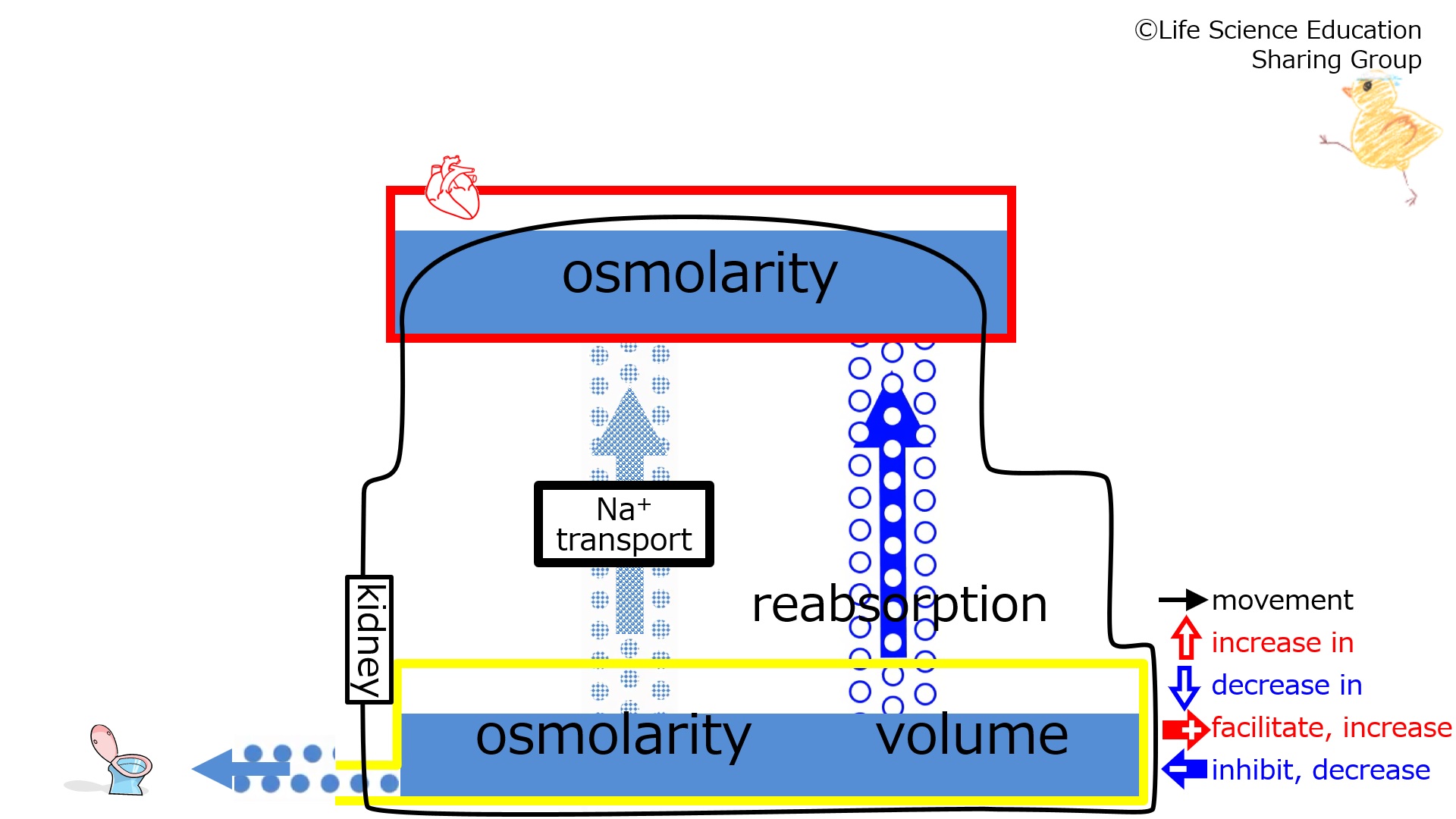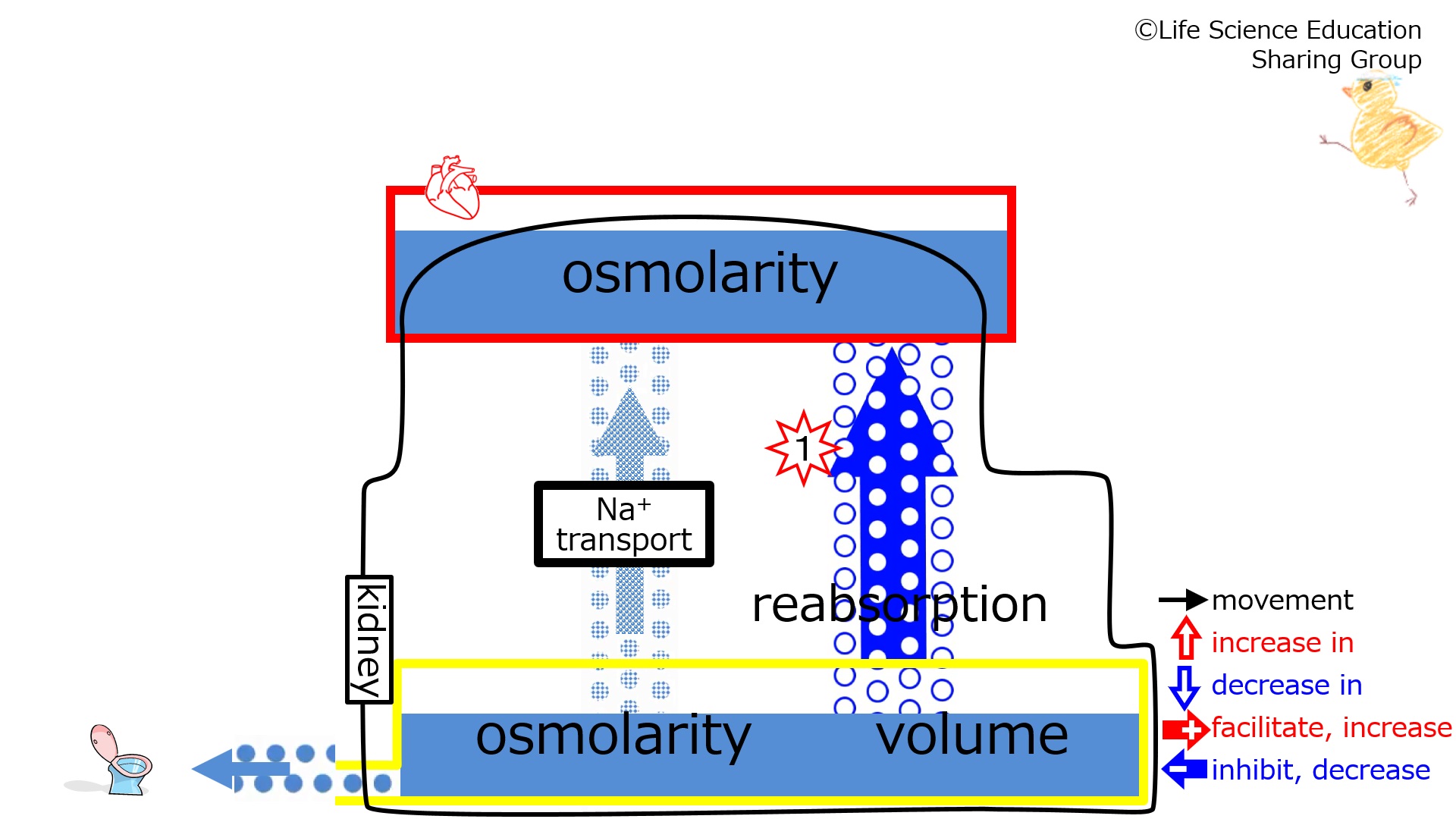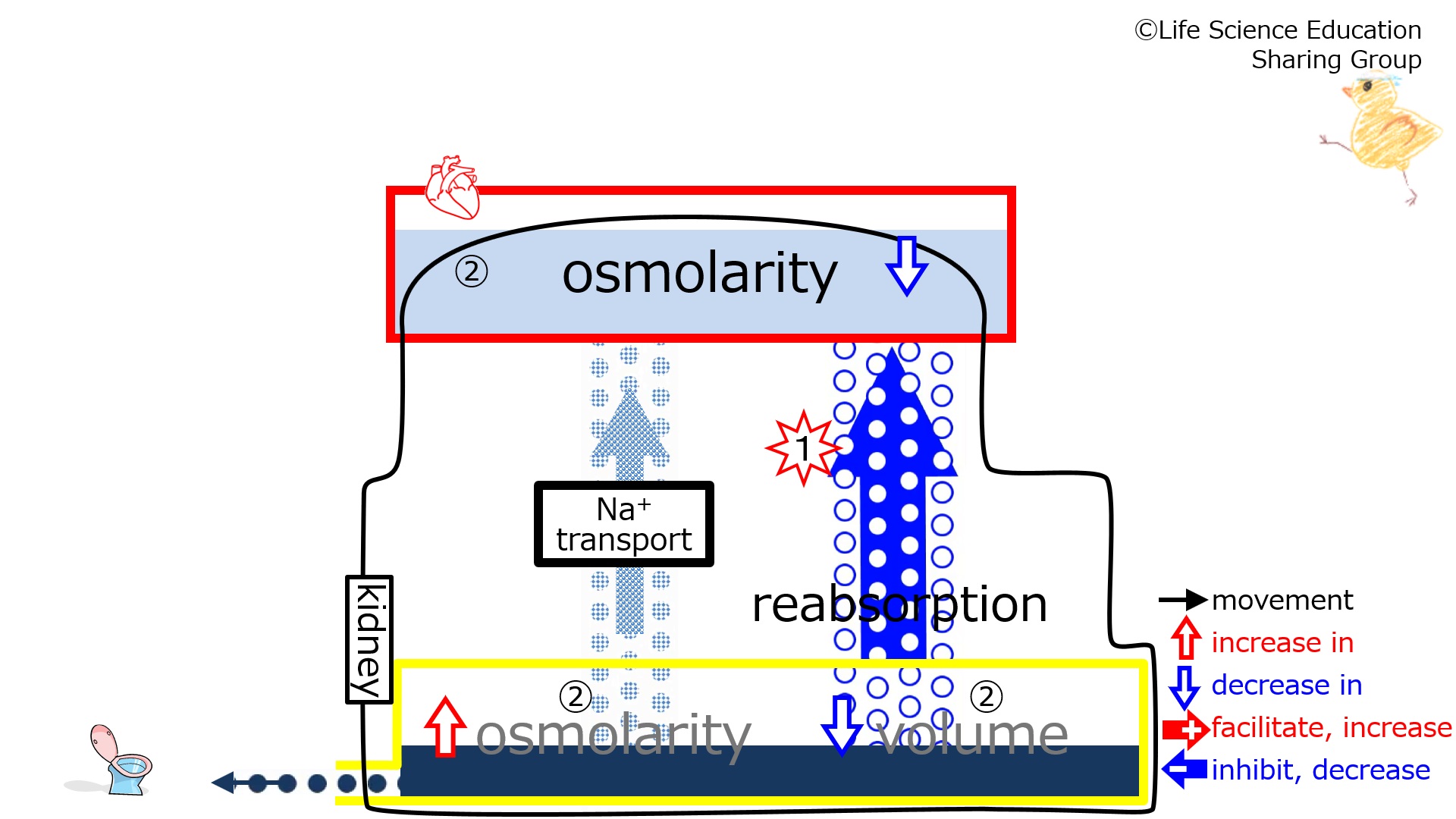「SHolroydAtWeilCornellMedQatar/Urology/Kidney/Tubules/WaterReabsorption/EffectOfIncrease」の版間の差分
編集の要約なし |
編集の要約なし |
||
| 38行目: | 38行目: | ||
//LEVEL: | //LEVEL:3 | ||
//RAND | //RAND | ||
With an increase in the water reabsorption from the tubule, urine osmolarity {~=increases~decreases} . | With an increase in the water reabsorption from the tubule, urine osmolarity {~=increases~decreases} . | ||
2020年4月2日 (木) 15:00時点における版
| With an increase in the water reabsorption from the tubule, plasma osmolarity and urine volume decrease, and urine osmolarity increases. |
Prior to the water reabsorption from the tubule increasing (at baseline), we will make the assumption that the subject is in homeostasis with normal plasma and urine osmolarities (isotonic) and urine volume.
Step 1: Suppose that the water reabsorption from the tubule increases.
Step 2: With the increase in water reabsorption, diluted (hypotonic) solution enters the plasma. This decreases plasma osmolarity (diluted, hypotonic). Because diluted (hypotonic) solution leaves the tubule due to reabsorption, the fluid remaining in the tubule has an increased osmolarity (concentrated, hypertonic). Also, with the increase in water reabsorption, there is less water remaining in the tubule. Overall, the urine becomes concentrated and decreases in volume.
Challenge Quiz
With an increase in the water reabsorption from the tubule, urine volume increases decreases .
With an increase in the water reabsorption from the tubule, urine osmolarity increases decreases .
With an increase in the water reabsorption from the tubule, plasma osmolarity increases decreases .



